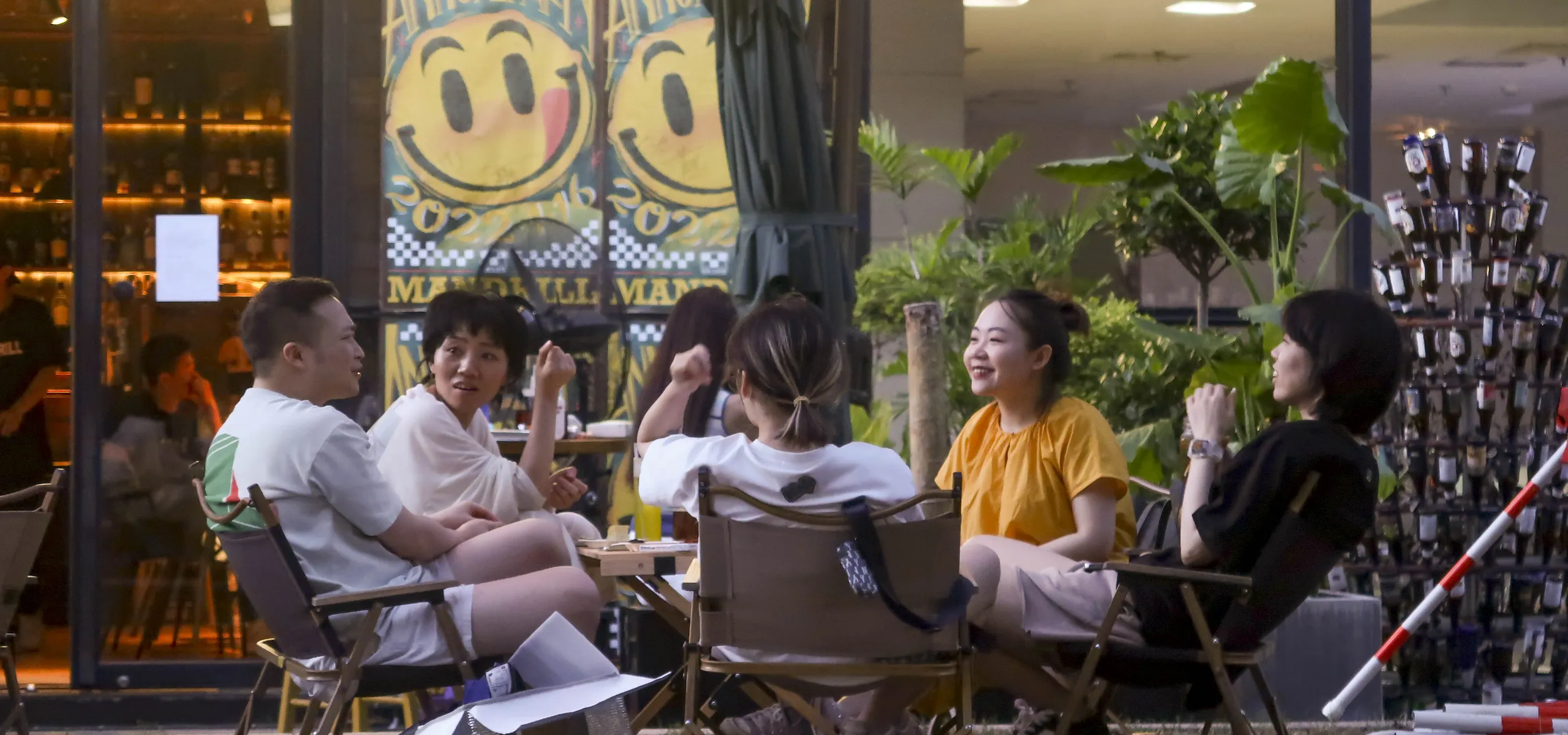Challenging everything from overtime work to abusive bosses, can China’s “post-00s” really rewrite workplace norms?
China’s “post-00” generation, or linglinghou, a rough equivalent of Gen Z, have begun their journey into the workplace in the past few years. Many older folks who often see this generation as spoiled and tech-obsessed are surprised to see them already taking the workplace by storm.
Unlike people in their 30s and 40s who have become jaded supporting their elderly parents, little kids, mortgages, and car loans, many post-00s, unencumbered by heavy financial burdens, are fearlessly raising their voices against toxic culture and unspoken rules that have long plagued Chinese workplaces.
The Weibo hashtag “Post-00s Are Truly Transforming the Workplace (原来00后真的有在整顿职场)” has accumulated 220 million views at the time of writing. The vast majority express praise or astonishment toward the bold attitudes of this youthful group and their ways of instilling the workplace with respect for personal boundaries, while some see their behaviors as bratty and lacking a sense of responsibility.
Here is a guide to how the post-00s are making their voices heard at work, and how other netizens are talking about them.
While stereotypes portray those born in the 1980s as consumed by family and marriage, and the post-90s as either too lazy or too competitive, the post-00s tries to set themselves apart:
The post-80s are obediently working overtime; the post-90s are pretending to work; while the post-00s are transforming the workplace with heavy blows.
80后加班唯唯诺诺,90后摸鱼装模做样,00后重拳出击整顿职场。
Whether it’s out of confidence or inexperience, this young generation’s attitude is showing up in their unexpected resumes. One popular image on Weibo shows a resume that lists being “a friend of Eileen Gu (谷爱凌的朋友)” as a “personal highlight,” as the 19-year-old Chinese-American Olympic gold medalist freestyle skier once said in an interview that she was not an idol but everyone’s friend; someone else highlights that they are a “winner of the 2022 Olympic Cup (2022年奥林匹克杯获得者),” an award given by the International Olympic Committee to the whole Chinese population.
While previous generations care about showing off their skills, for the post-00s, fun is at least equally important:
It doesn’t matter what I am capable of. The most important thing is I’m an interesting person.
我会什么不重要,重要的是我很有趣。
In interviews, rather than playing a passive role as candidates traditionally do, the post-00s are ready to show who’s in charge:
Recruiter: I have no further questions. Do you have any for us?
我问完了,你还有什么问题想问我们的吗?
Post-00 interviewee: Compared to other companies, what unique benefits do you think you can offer me?
您觉得和其他公司相比,您能给我提供什么独特的东西?
If it doesn’t go well, they could end the conversation before the recruiter even has a chance:
I’m not satisfied with the salary. Let’s just stop here. I have two more companies to interview with.
薪资我可能不是很满意,今天先这样吧,我还有两家等着去面试。
If you decide to hire a post-00 job seeker, don’t try to take advantage of them with fishy terms, as they are always ready to fight back:
Recruiter: When we’re busy, we might need you to come to work more than usual. Can you accept working overtime?
比较忙的时候需要你经常来上班,能接受加班吗?
Post-00 interviewee: So can you accept me slacking off at work?
那你能接受我偷懒吗?
In a 2022 cross-industry survey conducted by job searching platform, 51job.com, 91.6 percent of the respondents report working overtime, while 31.2 percent find their health is affected by overtime work. But the post-00 generation is ready to jump out of their office seats on time, and express their dissatisfaction against unfair demands even at the risk of offending their superiors.
Boss: Don’t always leave work on time. It’s not good. Others haven’t left yet.
别总踩点下班,这样不好,别人都还没走呢。
Post-00 employee: What does it have to do with me if others stay or leave? I have finished my work, so do I stay in the office to pretend to work?
别人走不走和我有什么关系,我工作做完了在办公室干吗,摸鱼吗?
They know their priorities:
I’m here to work, not to put on a show with everyone else.
我来上班的,不是陪大家一起来演戏的。
For those keen on assigning work right before the days, post-00s are seeing right through their tricks:
Why do you always call for a meeting as soon as it’s time to leave?
为什么一到下班时间,就通知开会?
With an emphasis on work-life balance, these youngsters would respond to the pressure to work on weekends with a cold shrug:
Boss: Why didn’t you answer my call on Sunday?
我周日打电话你怎么没接?
Post-00 employee: I thought it was a scam call.
我以为是骚扰电话。
Some manipulative bosses who portray themselves as wise but harsh superiors who care about young employees' growth, only to justify their exploitations. Post-00 employees might come back at them bluntly:
Boss: You young people can’t bear hardship. That will prevent you from doing big things.
你们年轻人就是吃不了苦, 干不了大事。
Post-00 employee: I can do big things, but that does not include making tea, pouring water, getting packages, or cleaning the office. I’m here to work, not to be bullied.
大事我能干,但端茶倒水取快递打扫卫生不在此列。我是来打工的不是来受气的。
To the bosses who always make promises but never deliver, these young people fire back with sarcasm:
My stomach is too weak to digest the false promises my leader makes.
我胃不好,消化不了领导画的大饼。
Boss, with such limited funds, it’s difficult for me to help you.
老板,这点钱,我很难帮你办事。
Dubbed 仲裁侠 (zhòngcáixiá, litigation warriors), the post-00 youths also frequently resort to legal action against wage theft or unreasonable dismissal, whereas the previous generations are more likely to bottle up their complaints in fear of burning bridges:
During my first year of work, I took four companies to court and two ended up bankrupt.
工作一年仲裁了4家公司,告倒闭两家。
Some workplace veterans find hope in this new generation’s belligerent approach, believing the post-00s might help “rectify” the exploitative workplace cultures that they themselves have failed to change:
Each generation has its own missions. Please keep going, post-00s. Our happiness depends on you.
每一代都有自己的使命,拜托了00后,我们的幸福托付给你们了。
The more skeptical onlookers, however, find these workplace behaviors to be childish fits that others will pay the price for, without truly bringing changes to the culture.
The so-called “workplace transformation” only makes life easier for yourself, while the entire department will have to pick up after you.
你们所谓的整顿职场只是让你们自己舒服了,整个部门的人都要给你们擦屁股。
Others still, believe that the youngsters will soften around the edges as they gain more experience in the real world, making this whole mission nothing but a temporary fad:
It’s more likely that before you can rectify the workplace, it will rectify you first.
可能还没来得及整顿职场,职场就先整顿你了。












